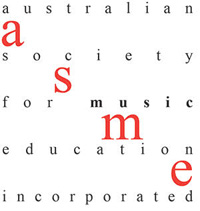The way you measure a society’s soul is by the way that it treats its children.
Nelson Mandela
Issue No. 116 – 20 March 2012
Welcome to Kidz Newz especially to all new subscribers. Kidz Newz is a regular newsletter with information and teaching tips for anyone involved with young children. You are receiving this because you have attended one of my workshops, purchased a book, or you have requested to be on the mailing list. Thank you. Please forward this to anyone you feel it may be of interest to. Feedback is welcome. Don’t forget to stay in touch on our Facebook Page and watch out for our exclusive fan page competitions.
Food for Thought
I came across this article from the team at Sonic Learning, the people who specialise in brain fitness for children. It is so wonderful to see that this sort of information is becoming so much more recognised. Look at the children in your midst. Who has trouble concentrating, has ADHD, has a learning disability of some kind…check out their diet. You would be astounded. Interesting that when you discuss diet with parents they are simply unaware that what they are feeding their children is inappropriate. Of course children want the sugary ‘party food’ as often as possible but party food is just that – a special occasion food rather than part of the everyday diet. I have written about the topic before but it’s great to have an update. My only disagreement with what follows is the suggestion that perhaps artificial sweeteners are not that bad…’the jury is still out’. I would say the jury is not out. Avoid all non-bio available chemicals. And what child wants to eat healthy dark chocolate? Get real. Just limit the chocolate. But adults can eat dark chocolate guilt-free. YUM! (Buy the organic variety – no chemicals.) Anyway, here’s the article:
“We all know the importance of healthy eating for weight management and overall health but scientists are beginning to understand how diet also influences brain development and mental function. With poor nutrition showing an association with reduced academic performance and behavioural problems, it’s now more important than ever to optimise your child’s diet.
Let’s take a look at what the science has found:
Food groups to include:
- Essential fatty acids, including omega-3 and omega-6, are essential for brain development and the prevention of cognitive decline. The body cannot synthesise these “good fats” meaning that they must be obtained from what we eat. Sources include flaxseed and some other seeds, oily or fatty fish, as well as some nuts and vegetables. If your child is resistant to eating these foods, a supplementary dose of quality fish oil such as krill oil will suffice.
- Amino acids are critical for healthy brain development and function. The brain uses amino acids to produce the chemicals involved in regulating mood, sustaining mental clarity, paying attention and boosting energy levels. A diet deficient in amino acids can result in depression and feeling tired or weak. About half of all amino acids are essential meaning they must be obtained from animal protein sources such as meat, fish and eggs, and/or plant protein sources such as soya beans and quinoa (pronounced keen-wa).
- Antioxidants can help to protect the brain against oxidative damage that leads to cell injury, aging and disease. Essential antioxidants, such as vitamin C, E and selenium, must be obtained from fruit, vegetables, nuts, seeds and grains. For a treat, choose quality dark chocolate containing at least 70% cocoa as this contains antioxidants called flavonoids.
Food groups to limit:
- Sugars, artificial sweeteners, colours, preservatives and artificial flavour enhancers have been found to inhibit the development of new brain tissue and connections when consumed in high quantities over a long period of time. Children who consume diets high in sugars typically display hyperactivity, anxiety, difficulty concentrating, and crankiness. The jury is still out with regard to artificial sweeteners but there is some suggestion that these chemicals are capable of crossing the delicate blood brain barrier and the long term effects of this are yet to be seen. Most experts recommend children only consume these substances in small quantities, if at all.
- Hydrogenated or trans-fats are not only harmful for the body but can also distort cell membranes and reduce learning ability. These “bad fats” are found in margarine, some baked or fried foods, as well as other long shelf-life processed foods. Most experts recommend avoiding trans-fats altogether and instead consuming monounsaturated and polyunsaturated fats such as those found in olive oil. Another healthy choice is cold pressed coconut oil.
In the real world it can be difficult to feed your child whole, unprocessed, nutrient-dense foods all the time but it’s very important to limit their consumption of snack foods that contain little or no nutritional benefit. Consuming a “brain healthy” diet at least 80% of the time is not only beneficial for your child’s physical development but has also been shown to promote healthy brain growth, positive behaviours and learning development.
You can view the article on the Sonic Learning website.
Quotes of the Week
“It is the LITTLE things in life that make a BIG difference.” ~ Tom Murrell’s Media Motivators, www.8mmedia.com
“People die of ignorance, not disease.” ~ Source unknown
“The ‘pectins’ from apples binds with metals in the body, preventing them from absorbing into the tissues, allowing them to be eliminated from your system. Be sure to add apples to your daily routine!” ~ Don Tolman’s Food for Thought newsletter, www.dontolmaninternational.com
Entertainment

A: Heart only good for so many beats, and that it…don’t waste on exercise. Everything wear out eventually. Speeding up heart not make you live longer; it like saying you extend life of car by driving faster. Want to live longer? Take nap.
Q: Doctor, should I reduce my alcohol intake?
A: Oh no. Wine made from fruit. Brandy distilled wine, that mean they take water out of fruity bit so you get more goodness that way. Beer also made of grain. Bottom up!
Q: Doctor, how can I calculate my body/fat ratio?
A: Well, if you have body and you have fat, your ratio one to one. If you have two body, your ratio two to one.
Q: Doctor, what are some of the advantages of participating in a regular exercise program?
A: Can’t think of a single one, sorry. My philosophy: No pain….good!
Q: Doctor, aren’t fried foods bad for you?
A: YOU NOT LISTENING! Food fried in vegetable oil. How getting more vegetable be bad?
Q: Doctor, will sit-ups help prevent me from getting a little soft around the middle?
A: Oh no! When you exercise muscle, it get bigger. You should only be doing sit-up if you want bigger stomach.
Q: Doctor, is chocolate bad for me?
A: You crazy?!? HEL-LO-O!! Cocoa bean! Another vegetable! It best feel-good food around!
Q: Doctor, is swimming good for your figure?
A: If swimming good for figure, explain whale to me.
Q: Doctor, is getting in shape important for my lifestyle?
A: Hey! ‘Round’ is shape!
Feedback (Comments from the ASME Summer School 2011)
Q: What was the most useful thing you learned today?
“The importance of fingerplays as well as the use of the activities for 1-3 and PP. I found it all very interesting.”
“It was all excellent for K-junior especially the multicultural. The most useful was (1) tapping sticks (2) potential of follow the leader (3) general info about stretching – thank you (4) use of classical music to movement.”
“Playing with sticks, scarves and music is fun. It was fabulous for early years kids. It was all excellent.”
About The Author
Marlene Rattigan B.A., Dip. Ed. (ECS), CELTA
Marlene Rattigan is an Early Childhood teacher, a teacher of English as a Second Language, and from 1987-2000 was a nationally accredited fitness leader. Her background is in music education. A keen interest in motor development in children led to the creation of Kidz-Fiz-Biz which she taught successfully for 13 years. Marlene also conducts workshops for children, teachers and parents at schools, in the community and at festivals. She has produced teaching manuals complete with audio CDs which are an extension of her ‘Kidz-Fiz-Biz’ program.
Kidz-Fiz-Biz
PO Box 6894, East Perth WA 6892, Australia
T: +61 8 9325 1204 M: +61 (0) 410 64 2781 E: info@kidzfizbiz.com
Enjoying Kidz Newz?
Perhaps a friend or colleague would enjoy it too! Add their contact address and click “Forward”. (Be sure to include this entire message, including the subscription details) By doing this you will help us grow.
Looking for lots of ideas? Visit the Kidz Newz archive where you will find back issues of Kidz Newz.
Like us on Facebook, follow us on Twitter, subscribe to our blog for more interesting information, articles and discussions or connect with Marlene on Linked In.
Until next time … continue being a legend in your classroom.
Marlene Rattigan, Editor
Kidz Newz
{tag_subscribe} if you would like to stop receiving these advices.





